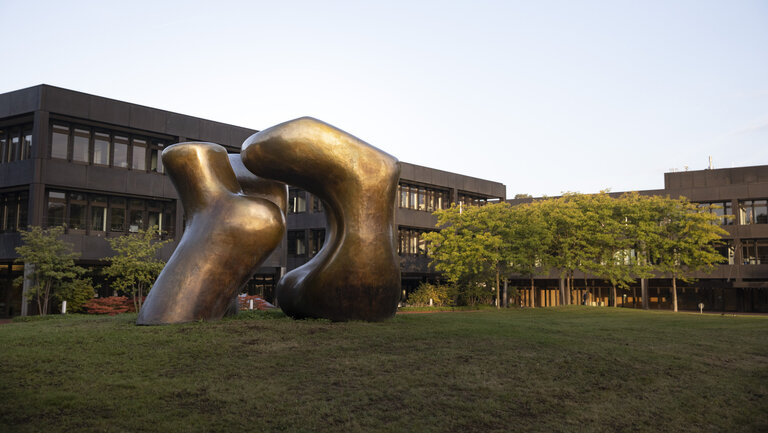As one of the highest-level federal authorities in Germany, the BMZ is responsible for the country's development policy. It already supports many projects and activities aimed at climate protection and resource conservation. To contribute even more in this respect, the BMZ initiated the Climate-Neutral BMZ 2020 project in 2017. The goal of the project was to avoid, reduce or compensate for the BMZ's greenhouse gas emissions to such an extent that the ministry becomes climate neutral. To accomplish this, the Federal Ministry arranged to have the buildings at its two locations (Bonn and Berlin) assessed for potential energy and CO2 savings. This task was performed by Drees & Sommer SE, the planning and consulting company specializing in real estate.
‘We have drawn up a comprehensive balance sheet of our CO2 emissions and developed a set of 200 measures to further reduce emissions in all relevant areas, such as heating, buildings, vehicle fleet, business trips, events, canteen and waste. This has already enabled us to save 1,000 metric tons of greenhouse gases per year in 2018. Our goal is to reduce emissions by a further five percent each year,’ said German Development Minister Dr Gerd Müller.
Up to 70 percent less energy consumption
As part of a plan to increase the energy efficiency of properties at the ministry's headquarters in Bonn, for example, a survey was conducted on four listed main buildings and other historical ancillary buildings, as well as the Deutschlandhaus and the Europahaus in Berlin. Drees & Sommer's sustainability experts assessed the ministry's buildings and technical facilities for optimization potential and developed suggestions for improvement.
The result: energy requirements could be reduced by around 50 percent at the BMZ headquarters. By switching from district heating to heat pumps, emissions could be cut by a further 20 percent. In contrast, the location in Berlin has rather low potential savings, as the buildings there have already been completely renovated or refurbishment is planned in a few years.
‘Modernizing buildings and facilities is very important for long-term climate neutrality. Just by renovating the properties at its headquarters, the BMZ can consistently reduce or even completely avoid its emissions in the future,’ said Johannes Hopf, Team Leader for energy design and sustainability consulting at Drees & Sommer. The recommended refurbishment of the buildings and technical installations is to be implemented gradually in the coming years. Some of the measures will pay for themselves economically in less than ten years.
In addition to assessment of the potential energy and CO2 savings in the properties, the overall project also focused on analysis of indirect emissions produced by the federal ministry through its activities, such as events, travel and even paper and water consumption.
